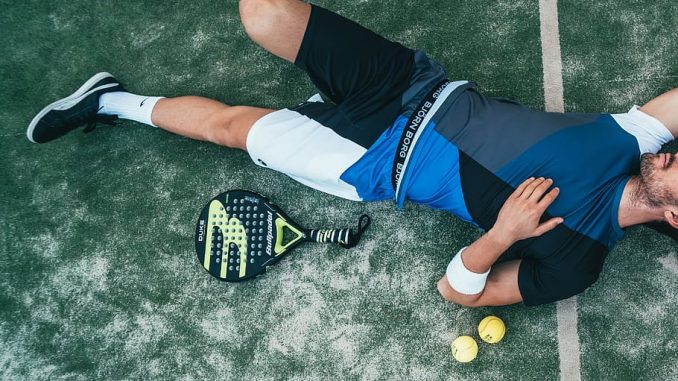
Although many people may talk about athletics, and rave over certain teams, a key part of the athletic lifestyle is left out – the offseason.
As any athlete will tell you, the main focus of most stars is their improvement during their offseason. The improvement is the most important aspect of their lives, as without improving to meet your goals, you’re not as committed to your sport as you may think.
According to Positive Performance, there are five main focuses that every athlete should attempt to accomplish during their offseasons, and I couldn’t agree more with their list.
First, rest. As crazy as it may sound, rest and sleep are completely different. In order to actually rest, you need to make the conscious decision to do absolutely nothing. Being an athlete is a stressful life to live, from three-hour practices daily, to 6 a.m. lifts, game recaps and let’s not forget mental anguish, your mind needs a break.
In my life, I remembered the feeling in my heart and my chest after a lost game. A game I felt I could have controlled or changed the outcome of. Obviously, in any team sport, it is never entirely your fault, but it is difficult to wrap your mind around the mistakes of the team and the mistakes you felt lost the game for you. This offseason rest is necessary to relax your mind on the things you no longer can change, but can attempt to minimize or improve upon in the offseason.
Many athletes take up different things during their offseason to keep their bodies in check, as well as to lengthen their mental stamina. These activities include yoga classes or spin classes, as they improve flexibility and strength in a way that isn’t draining to the same muscles you use consistently.
Second on their list is training your brain. This is as important as rest, however, rest is not the only thing that will benefit your mental health. As if you were running three miles, you would focus on your breathing. In through your nose, out through your mouth.
These same rules apply to your mind. Meditation is a very good skill to have, no matter what situation you may be in. In learning to meditate on the offseason, one will be able to handle different mental triggers during your actual season.
In my case, and probably for many other athletes, is that during a stressful game, my anxiety would spike. For years it was a struggle to figure out how to relax during a high-stress situation. With meditation, it was easy to train myself to focus on my heart rate and slow it down via my own mind.
The third way to recharge during the offseason is preparation. There are many different types of preparation, rather a change in diet is necessary or physical therapy for an injury. It is better to do both of these things out of season because if done in season, negative effects could occur.
If you attempt a radical change in diet while you’re in season, your body may not respond correctly. I went through this during my senior year of high school during field hockey preseason. The month prior, I had the idea to become a pescatarian, but I didn’t realize the effect of the lack of protein on my muscles, stamina and even game play ability.
Physical therapy, on the other hand, can affect your overall exhaustion. Freshman year of college, I was put through PT for a sprained MCL in my left knee. I spent hours on end in the athletic trainers office, strengthening my knees. This took hours out of my day, and exhausted my muscles before practice even began. If I had done the necessary PT in the offseason, I wouldn’t have needed the extra time everyday.
Fourth on the Positive Performance list is to “study your craft.” This is an interesting take on what to spend your time doing, but after further thought, it could not harm your athletic ability but rather increase it. Different ways to study include watching film, watching the major leagues or college level teams in your sport or even to read a book about the strategies involved.
Watching film benefits a team in many ways, specifically in more fast-paced sports. For teams like lacrosse, basketball, soccer and other running sports alike, a video of specific events can show mistakes made in form, communication or simple fundamentals. In my experience, softball and baseball players benefit more from filming their swing, their throw or the way they field a ground ball, including a variety of different skills needed in the sport. In watching these shorter videos, simple fixes can be made to movements that can change the course of a game, as well as your own individual performances.
Lastly, to really top off your offseason, connect with your teammates. Team chemistry is everything to a sport, whether we believe it affects overall gameplay or not. Hanging out with teammates increases the depth of each relationship. As Positive Performance states: “Exposure doesn’t always equal closeness.” Friendships don’t only make the game more enjoyable, the motivation given can change each athlete’s mindset in their abilities, therefore bettering the entirety of the team.
All in all, remember that offseasons are just as important as working out or eating right during your respective season. Athletes are much more than just their abilities, but their drive for improvement.
